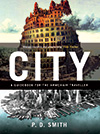An interesting discussion developed the other day on Twitter about the idea of "crowdfunding" books - asking people for donations to fund the author while writing a book. Simon Sellars (@ballardian) started the ball rolling, sending me a link to Deanna Zandt's blog in which she asks for donations.
I have to say I was initially sceptical, not to say cynical, about the whole idea. As Will Wiles (@WillWiles) said, it seemed a bit too much like "panhandling". Science fiction author Tim Maughan (@timmaughan) was similarly negative about the idea.
But having thought about this and listened to Deanna's side of things I see that it certainly can work. Although, as she says, it clearly works best if you are talking to a community that is open to this approach. I'm not sure it would work for the kind of cultural history books I write, for example.
Tim Maly (@doingitwrong), co-founder of Capybara Games, pointed out the advantages of this way of funding books and other artistic projects. As he said, if it works for Robin Sloan (@robinsloan) at Kickstarter, why shouldn't it work for other authors?
Anyway, it's an interesting debate and Tim Maly has collated the various comments from people and written a fascinating blog on the issues it raises which is well worth reading.
Michelle Pauli (@michellepauli) at the Guardian has also written a rather more sceptical piece highlighting the ethical problems involved. For example, she points out that "as [Deanna Zandt] is writing about social networking it might be relevant to the reader to know if, for example, the MD of Facebook has contributed a large sum to the writing of her book".
One nagging fear I have about crowdfunding is that if it catches on then publishers may stop paying advances altogether. Authors are already having to make do with much lower advances. And today I see in The Bookseller that an agent has struck a deal where there is no advance and the profits are split between author and publisher.
Perhaps the new age of the eBook will change things, allowing authors to reach untapped audiences and making writing more rewarding. I hope so. If not then crowdfunding books may well be the only option for some authors.
 My review of
My review of  The latest issue of Wired UK, "
The latest issue of Wired UK, "
